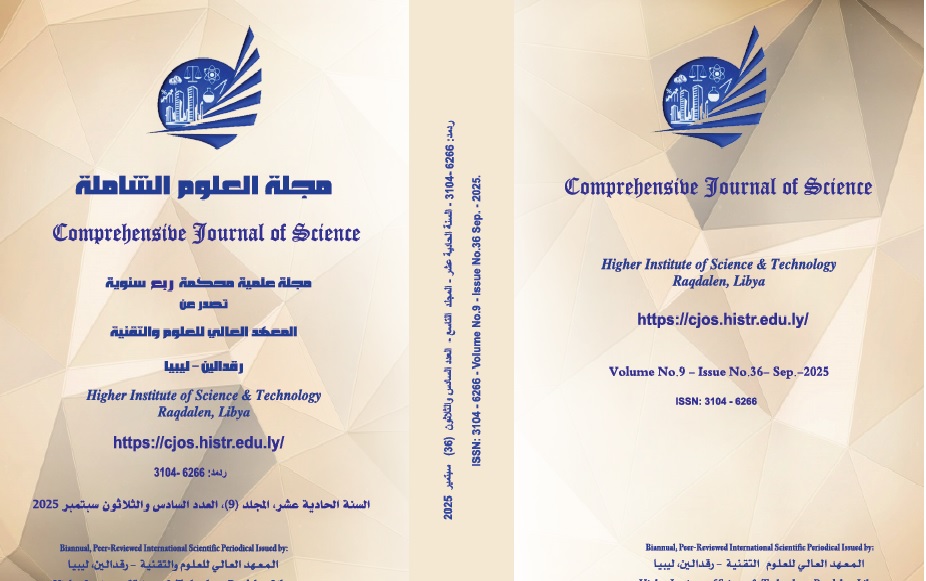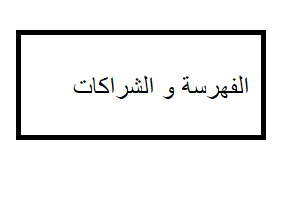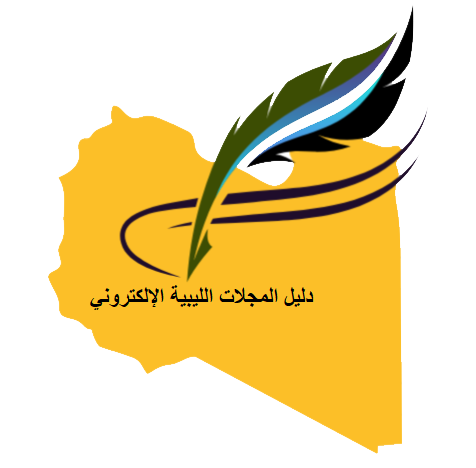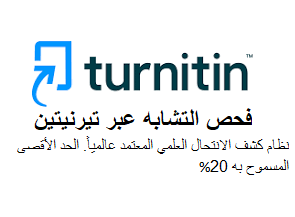دراسة تحليلية لأسباب الصعوبة في تعلم مادة الفيزياء لدى طلاب السنة الثالثة ثانوي في ليبيا
Keywords:
الكلمات المفتاحية: الفيزياء، الصعوبات التعليمية، التعليم الثانوي ، ليبيا، العوامل التربوية، القلق الأكاديميAbstract
Abstract:
This study aims to analyze the reasons that make physics one of the most difficult subjects for third-year secondary school female students in Libya. This stage of education represents a critical period in the students’ lives due to its direct impact on their future academic paths. The study employed a descriptive-analytical approach, and a questionnaire was developed and distributed to a sample of students from several secondary schools in Libya. The results indicated that the difficulty of abstract physics concepts, the inadequacy of teaching methods used in the classroom, the lack of practical applications, and academic anxiety were among the main factors contributing to students’ perception of physics as a difficult subject. The study recommends renewing teaching methods, increasing interactive activities, and providing psychological and academic support for the students.
Keywords: Physics, Learning Difficulties, Secondary Education, Libya, Educational Factors, Academic Anxiety
Downloads
References
المراجع :
1. السعدي، أحمد (2021). صعوبات تعلم الفيزياء لدى طلبة المرحلة الثانوية. المجلة التربوية العربية، 14(2)، 45-66.
2. الخالدي، منى (2020). أثر الأساليب التعليمية في تقبل الطالبات للمواد العلمية. مجلة البحوث التربوية، 8(1)، 22-39.
3. إبراهيم، فاطمة (2019). تحليل اتجاهات الطلبة نحو الفيزياء في ضوء بعض المتغيرات. المؤتمر الوطني للتعليم الثانوي، طرابلس – ليبيا.
4. العتيبي، سارة (2021). اتجاهات طلبة المرحلة الثانوية نحو مادة الفيزياء وصعوباتها التعليمية. مجلة العلوم التربوية، جامعة الملك سعود، 33(2)، ص. 115–134.
5. محمد، سعاد (2020). صعوبات تعلم الفيزياء لدى طلبة المرحلة الثانوية وعلاقتها بالتحصيل الدراسي. مجلة دراسات في العلوم التربوية والنفسية، جامعة طرابلس، 14(1)، ص. 45–67.
6. الزهراني، فهد (2019). أثر أساليب التدريس النشطة على تحسين اتجاهات الطلبة نحو مادة الفيزياء. مجلة العلوم التربوية والنفسية، جامعة البحرين، 19(3)، ص. 88–105.
7.عبد الجليل، منى (2022). القلق الأكاديمي ودوره في إدراك صعوبة المواد العلمية لدى طلبة المرحلة الثانوية. مجلة العلوم الإنسانية والتربوية، جامعة سبها، 10(1)، ص. 55–74.
8. خليفة، علي (2020). الفرق في التحصيل الأكاديمي والاتجاهات بين المدارس الخاصة والعامة في تدريس العلوم. مجلة البحوث التربوية، جامعة القاهرة، 34(2)، ص. 123–147.
9- Khine, M. S. (2015). Attitude toward Physics: Student Beliefs and Classroom Practices. Springer
10-Mualem, R., & Eylon, B. S. (2018). Learning physics through authentic inquiry: The influence of students’ beliefs and motivation. International Journal of Science Education, 40(6), 710–730.
11- Hamdan, A. K. (2021). Teacher’s Teaching Style and Students’ Attitudes Toward Physics Learning: A Structural Equation Modeling Approach. Eurasia Journal of Mathematics, Science and Technology Education, 17(4), em1962.
12- Osborne, J., & Dillon, J. (2008). Science Education in Europe: Critical Reflections. The Nuffield Foundation.. 13- Bandura, A. (1997). Self-efficacy: The Exercise of Control. W.H. Freeman.
14- Taasoobshirazi, G., & Glynn, S. M. (2009). College students solving physics problems: A cognitive framework for analysis. International Journal of Science Education, 31(16), 2123–2156.
15- Tuan, H. L., Chin, C. C., & Shieh, S. H. (2005). The development of a questionnaire to measure students’ motivation toward science learning. International Journal of Science Education, 27(6), 639–654.. 16- Alhazmi, A. (2022). Comparing Public and Private Secondary Schools: Teaching Practices and Student Achievement in Physics. Journal of Educational Research and Practice, 12(1), 45–62.
Downloads
Published
Issue
Section
License

This work is licensed under a Creative Commons Attribution-NonCommercial-ShareAlike 4.0 International License.










